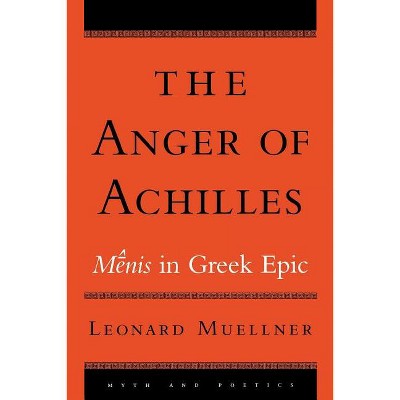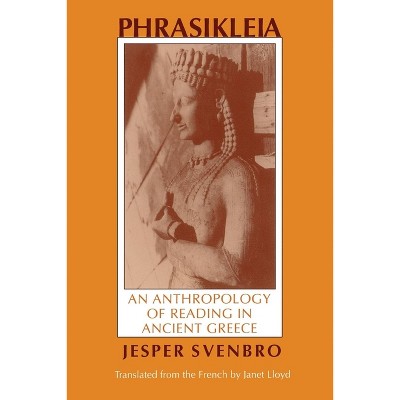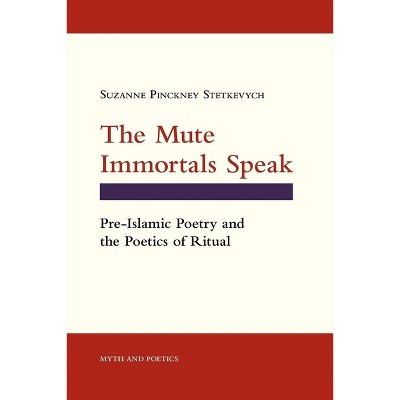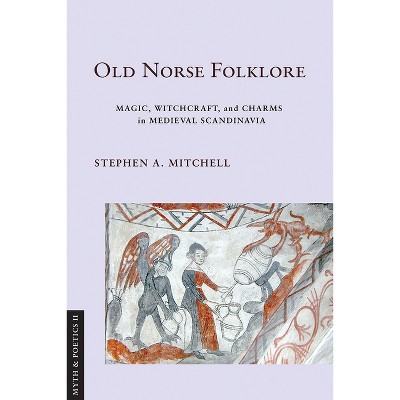Sponsored

The Odyssey in Athens - (Myth and Poetics) by Erwin F Cook (Paperback)
In Stock
Sponsored
About this item
Highlights
- A study in poetic interaction, The Odyssey in Athens explores the ways in which narrative structure and parallels within and between epic poems create or disclose meaning.
- About the Author: Erwin Cook is T. Frank Murchison Distinguished Professor of Classical Studies at Trinity University.
- 232 Pages
- Literary Criticism, Ancient & Classical
- Series Name: Myth and Poetics
Description
About the Book
A study in poetic interaction, The "Odyssey" in Athens explores the ways in which narrative structure and parallels within and between epic poems create or disclose meaning. Erwin F. Cook also broadens the scope of this intertextual approach to include...
Book Synopsis
A study in poetic interaction, The Odyssey in Athens explores the ways in which narrative structure and parallels within and between epic poems create or disclose meaning. Erwin F. Cook also broadens the scope of this intertextual approach to include the relationship of Homeric epic to ritual. Specifically he argues that the Odyssey achieved its form as a written text within the context of Athenian civic cults during the reign of Peisistratos. Focusing on the prologue and the Apologoi (Books 9-12), Cook shows how the traditional Greek polarity between force and intelligence informs the Odyssean narrative at all levels of composition. He then uses this polarity to explain instances of Odyssean self-reference, allusions to other epic traditions--in particular the Iliad--and interaction between the poem and its performance context in Athenian civic ritual. This detailed structural analysis, with its insights into the circumstances and meaning of the Odyssey's composition, will lead to a new understanding of the Homeric epics and the tradition they evoked.
From the Back Cover
A study in poetic interaction, The "Odyssey" in Athens explores the ways in which narrative structure and parallels within and between the epic poet (aka Homer's) texts create or disclose meaning. Erwin F. Cook also broadens the scope of this intertextual approach to include the relationship of Homeric epic to ritual. Specifically he argues that the Odyssey achieved its form as a written text within the context of Athenian civic cults during the reign of Peisistratos. Focusing on the prologue and the Apologoi (Books 9-12), Cook shows how the traditional Greek polarity between force and intelligence (or bie and metis/noos) informs the Odyssean narrative at all levels of composition. He then uses this polarity to explain instances of Odyssean self-reference, allusions to other epic traditions - in particular the Iliadand interaction between the poem and its performance context in Athenian civic ritual. This detailed structural analysis, with its insights into the circumstances and meaning of the Odyssey's composition, will lead to a new understanding of the Homeric epics and the tradition they evoked.Review Quotes
A remarkable work which places the final text of the Odyssey into a new light.
-- "Journal of Indo-European Studies"A stimulating new attempt to explain the genesis of the Odyssey in terms that respond to the social and religious environment of its age.
--Peter Wilson "Classical Review"In a work of perceptive and perceptive and persuasive scholarship, lucidly written and argued, Cook provides an intellectually satisfying guide to the thematic and structural unity of the Odyssey. There is much in this fine book that can be read with profit by both general readers and advanced scholars.
-- "Choice"About the Author
Erwin Cook is T. Frank Murchison Distinguished Professor of Classical Studies at Trinity University.
Shipping details
Return details
Trending Poetry











